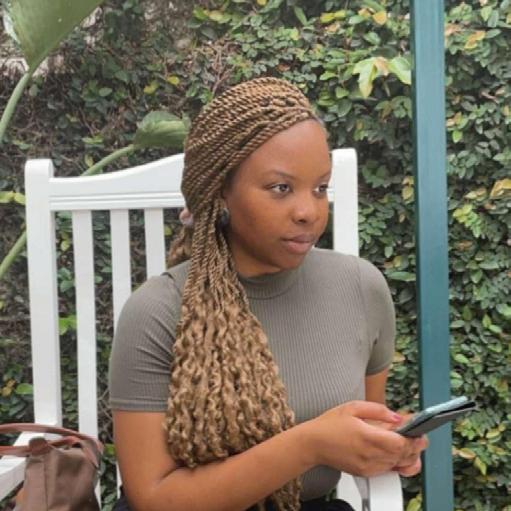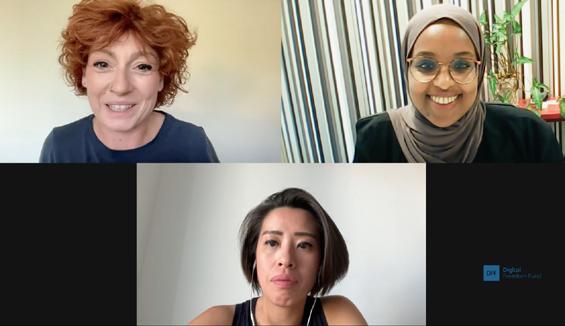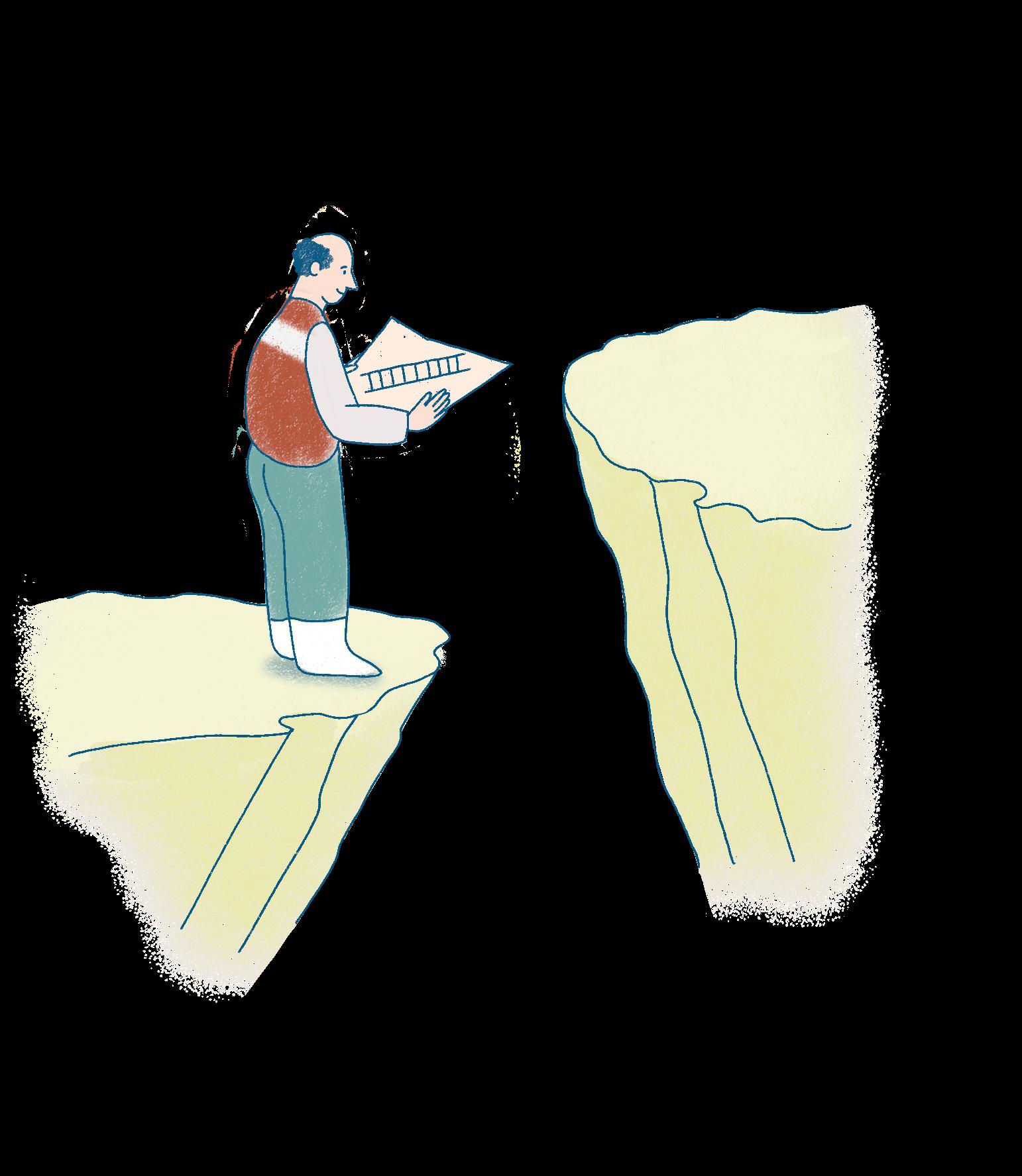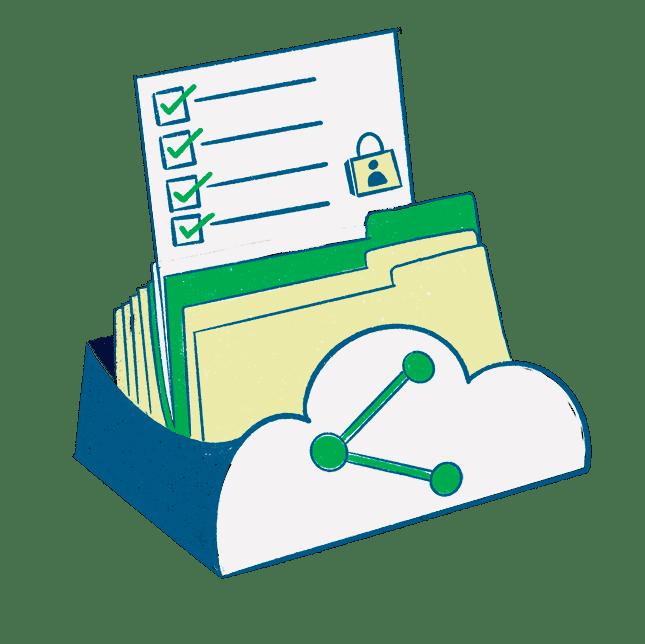Upholding our integrity

Our commitment in 2023 Our community
To apply an anti-oppressive and anti-colonial framing throughout our work, recognising that we are stronger when we work together and that those facing the most oppression deserve to be at the forefront of our efforts.
Up to this point
Encompasses all organisations working on digital rights topics, including groups working on all kinds of racial, social, environmental and economic issues where human rights are impacted by digital technology or the internet.
And beyond
In 2023, we collaborated with around 200 human rights defenders and activists from 147 organisations around Europe. In November, we achieved a major milestone by approving our 100th grant since our founding in 2018. To date, we have supported the strategic litigation activities of nearly 70 organisations and individuals in around 30 countries, disbursing over EUR 4 million in total.
By the end of 2024, we expect to approve 20 additional grants, totalling another EUR 800,000.

Why we exist Vision Who we support
The Digital Freedom Fund (DFF) exists to support the digital rights community in Europe to advance and protect human rights in digital spaces and reduce the negative impact of technology in the world.
We envision a society in which technology and digital spaces are used justly and fairly so that all communities and individuals can fully enjoy their human rights.
We support Europe’s digital rights litigators and human rights activists, enabling them to become more effective in their work and seek justice by using strategic litigation as a tool to advance digital rights. Our geographical scope currently covers all 46 Council of Europe countries, as well as European regional courts and forums like the European Court of Human Rights, Court of Justice of the European Union and the European Commission.
How we do things
We do this through grants for legal, advocacy, research, and other costs involved in strategic litigation. Our support extends to organisations advancing digital rights across Europe, offering resources, skill and knowledge-sharing workshops, networking opportunities and strategy-building events.
The combined efforts of these approaches enables digital rights organisations from Europe to engage in more effective and strategic litigation and build a stronger, more resilient community of diverse groups and individuals.
The team

We are a dynamic group with diverse expertise and passions, all united by a shared mission to ensure that everyone has access to justice and can exercise their digital rights in the online and offline world.












Message from the team
2023 marked a turning point for the Digital Freedom Fund. Six years after our founding, we had moved beyond the teething stage. It was the right moment for us to reflect upon our values and ensure that we were living them both in our programmatic work and internal operations.
We were thrilled to hit a phenomenal milestone by making our 100th grant in 2023. Even more exciting was the significant increase in new applicants, especially those focused on racial, LGBTQI+, economic, gender, asylum, and children’s rights. As 2023 became the hottest year on record, we’re also working to extend this momentum to digital environmental justice in the coming years.
Recognising the importance of emerging European laws, such as the Collective Redress Directive, the Digital Services Act, and the Digital Markets Act, we made these a focal point at our Community Strengthening and Support events. This approach ensured that our civil society partners across Europe had the chance to upskill and collaborate, using these tools to enhance digital rights protections.
We also completed the design phase of the decolonising programme which we co-led along with European Digital Rights (EDRi). The resulting programme, “A Vision for Digital Justice Organising in Europe”, was soft-launched in October in Brussels. In 2024, this programme will evolve into an autonomous organisation called Weaving Liberation.
Internally, we engaged in a deep reflection on what it truly means for DFF to embody anti-oppression values. This process led us to realise the importance of aligning our internal operations with our commitments to social, racial, economic, and feminist justice in order to fully realise our potential as a human rights organisation. After nearly a year of assessing our organisational needs and exploring the most suitable approaches, we are pleased to announce that in early 2024, DFF adopted a new distributed leadership model.

This model shifts DFF from a traditional centralised leadership structure with line management to a peer-based, decentralised system with a flatter hierarchy. In this new structure, our team is organized into circles, where staff coordinate their work, annual leave, and other plans collaboratively.
By integrating anti-oppressive principles within DFF, we have prioritised our staff’s well-being, fostering greater stability, resilience and team cohesion. While this process of self-reflection and change was challenging, it has positioned us to enter 2024 better prepared than ever to support our digital rights community.

A year of transition - shifts in organisational culture and structure

Increased staff retention, archiving of institutional knowledge and connection and trust between staff
Designed a fairer, more transparent salary model together.
Established a childcare policy for working parents. Further developed home office allowance, wellness stipends, and time off in lieu policies.

Moved permanently to a four-day working week following a sixmonth trial.


Became a fully remote organisation on a permanent basis

Began to collectively design a new leadership model that would be implemented in 2024
Our key milestones and activities in 2023
February
Began a six-month trial of the four-day working week
Speaker Series: Another Tech is possible?
February-April
Consultation on the programme that emerged from the collaborative decolonising process that ran between 2020-2023
April
Workshop on Legal avenues for platform accountability
March
Sixth Annual strategy meeting
September
Strategic Litigation Retreat
Publication of the report Evidence Gathering for Platform accountability
Speaker Series (continued): Digital rights are Charter rights
October
Pre-launch of the decolonising programme ‘A Vision for digital justice organising in Europe’
Speaker Sries: Collective Redress – Lessons from around the Globe
December
Platform workers strategic workshop
May
Workshop on Opportunities and Challenges utilising the EU Charter
Workshop on Taking fortress Europe to court held in Berlin
Speaker Series: Digital rights are Charter rights
June
Close of Grant round 1: 11 grants approved
Capstone workshop on Evidence gathering
August
Permanent four-day working week is implemented
November
Close of 2nd Grant Round: 10 new grants including our 100th grant
Workshop on best practices for utilising the EU Charter in digital rights litigation
Reflections on 2023

There is a need to profoundly change the way digital rights are conceived and guaranteed to ensure that all of us can enjoy our fundamental rights, both on and offline, free from systemic oppression.

Our work in 2023

Our work falls into two programmes
The first is our Strategic Litigation Support Programme, which provides financial support through grants to groups and individuals using litigation to advance digital rights.
The second is our Community Strengthening and Support Programme which focuses on facilitating events and convenings as well as developing resources to support organisations and individuals in pursuing litigation on digital rights issues.

Strategic Litigation Support Programme
We closely assess how the organisations we support engage with communities most impacted by digital rights violations. Our goal is to avoid funding litigation that is extractive or disregards the needs and desires of those most affected. Over the past three years, through our expanded outreach efforts, notably through the project Digital Rights for All, we have significantly increased our support for a wide range of groups working on racial, social, and economic human rights issues.
2023 was our most popular year for grant applications so far with 70 applications received. We also achieved a major milestone, approving our 100th grant. This year we approved 23 grants supporting activities across 14 countries: Austria, Azerbaijan, Belgium, Croatia, France, Germany, Greece, Ireland, Netherlands, North Macedonia, Poland, Serbia, Spain, and the United Kingdom.
We were particularly excited to see so many new groups, with 40 of the 70 applications coming from first-time applicants, including organisations focused on issues like LGBTQI+ rights, racial justice, worker rights, asylum rights, children’s rights and women’s rights.
In 2023, responding to regular requests over recent years, we started supporting “post-litigation” activities, such as workshops to share lessons and advocacy to push for enforcement of decisions.
We continue to update our case study page with new cases and case updates. We upgraded the web page in early 2023 to make the cases easier to search and filter by topic, organisation, jurisdiction, and status.

instances

Community Strengthening and Support Programme
Since our founding in 2017, we have brought together over 450 participants from more than 140 organisations across Europe through various events and gatherings focused on digital rights issues. In 2023, we organised a wide range of events and created a range of resources aimed at supporting work on digital rights topics, as part of a range of different projects.
Our focus this year was on widening the spectrum of organisations and activists involved in our work, placing the role of digital technologies in (re)producing and deepening structural inequalities at the centre of our focus. This was reflected in our choice of focus topics for our events as well as in the way the agendas for the events were set and how participants were selected.
Participants
+450

Our sixth annual strategy meeting took place in March 2023 and was held in-person for the first time since February 2020. Around 60 people from a wide range of organisations attended the meeting. We had multiple sessions on topics ranging from unlawful handling of bulk communications to digital environmental justice, and private technological infrastructures for the public sector to decolonising the digital rights field.



In April we facilitated the workshop “Legal Avenues for Platform Accountability” in Barcelona. This workshop looked at different legal pathways for holding platforms accountable within Europe. It focused on both new legislation such as the Digital Services Act, Digital Media Act and Collective Redress Directive as well as existing underutilised legal avenues such as anti-discrimination law and the EU Charter.


In May, we organised a workshop in Berlin called “Taking Fortress Europe to Court” in partnership with International Women* Space. Over two days, around 25 attendees from anti-racist, migrant rights, and digital rights organisations discussed the key issues at stake in the Europe’s digital border regime.
In June, we held the capstone evidence gathering event as part of an initiative to bring together legal experts and tech-centred activists to work together on platform accountability. Following this, in September, we published a report on the role of technologists in evidence gathering for cases and how we can improve the collection, storage, maintenance and sharing of informa tion and evidence.

In September, in collaboration with Homo Digitalis we coordinated our fifth strategic litigation retreat in Athens. This retreat brought together 14 different people from across Europe taking or planning litigation related to platform accountability and collective redress. Over four days participants built up their legal skills and tactics while thinking critically about how litigation can be more impactful if embedded in a wider strategy or movement. Participants were able to workshop their own proposed case in a relaxed and collaborative environment.

For our European Commission-funded digiRISE project that launched at the end of 2022, we produced an essay series (in both English and Spanish) which articulates how digital rights are EU Charter rights, and coordinated two workshops: the first, held in May, on opportunities and challenges utilising the EU Charter and the second, held in November, on best practices for utilising the EU Charter in digital rights litigation.

In December, we co-organised our final event of the year with Observatorio TAS (Algorithm, Work and Society Observatory), a Spanish civil society organisation. The event focused on platform accountability from the perspective of empowering platform workers across the sector.

Speaker Series
Over the year, we also ran three online speaker series. These consisted of seven sessions on lessons about collective redress from around the globe, two sessions exploring concrete cases where the EU Charter of fundamental rights was utilised to protect digital rights at a national, cross-jurisdictional or EU level, and two additional sessions on how to deploy an anti-colonial lens and approach in digital rights work.
Another Tech is Possible?t











Decolonising the Digital Rights Field in Europe
Learn more
Since 2020, together with European Digital Rights (EDRi), we have co-led an ongoing effort to decolonise the digital rights field in Europe. Throughout this process, we have remained actively engaged in shaping a more inclusive approach. In 2023, we completed the design phase, during which we consulted over 30 people from around 24 organizations and invited them to collaborate and cocreate the decolonizing programme. The consultation work was led by a consultant with the support of a drafting group and embraced a variety of methods from open calls for feedback as well as interviews with people with expertise on thematic areas that the participants named as needing reinforcement in the programme. We then drafted a final programme to support and sustain a digital justice ecosystem in Europe through new activities, spaces and processes that integrated the feedback and new ideas harvested through the consultation process.
The programme, called “A vision for Digital Justice Organising in Europe”, was pre-launched in October in Brussels among members of the growing Decolonising Digital Rights in Europe community. A Blueprint of the process was also produced, sharing lessons from the design phase process with the intent of supporting other similar initiatives in their journey.
To support the implementation of the programme, a new entity named ‘Weaving Liberation’ will be established in 2024. Weaving Liberation is intended to be a collective structure better suited to supporting a decentralised and coordinated implementation of the decolonising digital rights field programme. The broader goal of this space will be to support transformative work on digital justice and liberation in Europe, by connecting movements to work towards structural durable change. Weaving Liberation will initially be a hosted entity at DFF. It will have separate leadership and staff, decision-making and governance, while employing DFF’s administrative, accounting infrastructure.

The co-leads of the decolonising process,
Our impact
It’s not all about winning a case…
Beyond court judgments, positive outcomes from taking litigation include influencing the way in which certain topics are portrayed in the media, increased agency or representation of affected communities in legal proceedings, prompting others to engage in legal action, or developing and applying knowledge gained through their pre-litigation research to improve the quality and reach of other advocacy campaigns.

Success Stories that made an impact
DFF plays a crucial role in fostering significant and meaningful progress in the field of protecting the digital rights across Europe. Explore the most inspiring success stories of 2023:
January
The year started with a win in litigation bought by Liberty and Privacy International, when a UK tribunal found that there were “very serious failings” at the highest levels of MI5 – British secret service, and that they had unlawfully handled individuals’ private data.

April
In April, a court in Amsterdam found in favour of workers and against Uber and Ola Cabs in a case coordinated by Worker Info Exchange. Among other rulings, the court ordered Uber and Ola Cabs to provide information to workers on automated decision making relating to work allocation and fares including dynamic pay and pricing.
September
In September 2023, in a case supported by the Norwegian Consumer Council and noyb, the Norwegian Privacy Appeals Board announced that it upholds the Norwegian Data Protection Authority’s fine of NOK 65 million (EUR 5.8 million) against LGBTQI+ dating app Grindr for illegal data sharing, the highest fine that the authority has ever imposed.
November
The year ended with a ground-breaking decision for Romani rights in Slovakia in November 2023, with the court ruling that the Slovakia government had discriminated against the plaintiff, a Romani girl, in access to education on the grounds of her social origin, property, and Romani ethnic origin and had also violated her right to access to information. The lawsuit, supported by the Center for Civil and Human Rights, had argued that Roma children were disadvantaged by a move to online distance learning during the COVID-19 pandemic.

An important outcome of our overall work is a sustainable community of stakeholders from different fields having close connections, further working together and exchanging on digital rights and justice issues to coordinate efforts.
In 2023, our events continued to be praised for their relevance, the quality of facilitation and for the essential connections and networks that are established. Across different workshops and gatherings in 2023, an average of 98% of participants stated that their objectives for attending a particular event were met.
The event organisation, networking and social opportunities, and meeting facilitation were particularly praised (above 90%), rating these aspects as good or excellent.
“I think DFF is playing a key role in gathering groups working on digital rights, tech world and groups working on social justice issues… Let’s have some more joint action!”
Legal Avenues for Platform Accountability Workshop 2023
“The Court’s decision is groundbreaking, as it is the first decision in a ‘digital divide’ case not only in Slovakia but also in Europe.”
Center for Civil and Human Rights

“Learning is a journey. The DFF meeting more than exceeded my learning objectives. But the problem now is I have replaced a set of questions with a whole new set of questions. It is a happy dilemma”
Legal Avenues for Platform Accountability Workshop 2023
Additionally, 97% of participants agreed our events provided a safe and open space that was free from inappropriate and unacceptable behaviour from other participants and DFF staff, and 86% of participants reported having a better sense or understanding of the topics being covered following the event.
In 2023, a number of cases were taken forward after being directly influenced by our community strengthening events. Additionally, we are expecting a number of other groups that workshopped cases at our litigation retreat to submit grant applications to us in February 2024. This highlights the synergies between our litigation retreats and grantmaking programme.

“I
think that in a years’ time there will be actions that would not have happened were it not for DFF bringing us together”
Strategic Litigation Retreat 2023
Our finances and spending
2023 was another year of growth for DFF and improvement across the board in financial performance and health. Direct spending on programme activities grew 26%, outpacing growth in operational cost leading to higher financial efficiency. Activity spending growth was concentrated in core community strengthening activities, and most notably in the digiRISE programme launched at the very end of 2022. All activities resulted in total operational spending of EUR 2.19 million in 2023 (2022: EUR 1.77 million). All of these gains were achieved while reducing staff work time through permanent adoption of a four-day workweek.
See our 2023 audited accounts here.
Our Governance
DFF’s Board is formally charged with oversight of all activities and vested with all decision-making power of the organisation. In 2023 they were fully involved in every part of our internal changes providing the team with significant support and guidance.
A list of our Board members and their expertise and experience can be found here.

Annual Report 2023
The Digital Freedom Fund supports strategic litigation to advance digital rights in Europe, by applying decolonising principles to enable the digital rights community to exercise their collective rights in digital and networked spaces. Providing financial support for strategic cases, DFF is well placed to catalyse collaboration among activists, litigators, and the whole digital rights community.
Credits
All other content © Digital Freedom Fund 2023 and CC BY-SA 4.0
Graphic design
Justina Leston
Illustrations and Artwork
Berenice Álvarez and Laura López
Kruthika NS
Nicole Snaiderman
www.digitalfreedomfund.org info@digitalfreedomfund.org
Postal address
Digital Freedom Fund
Nieuwezijds Voorburgwal 104-108 1012 SG Amsterdam
The Netherlands
